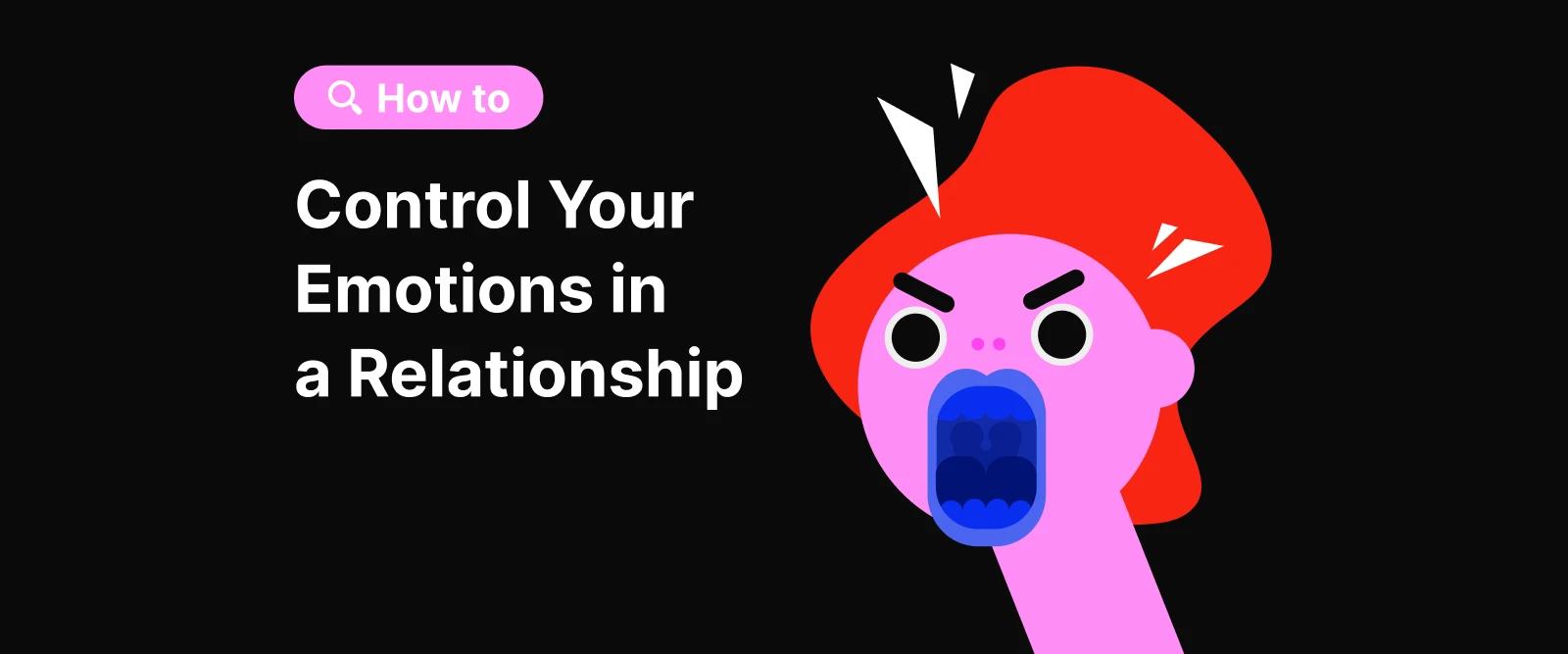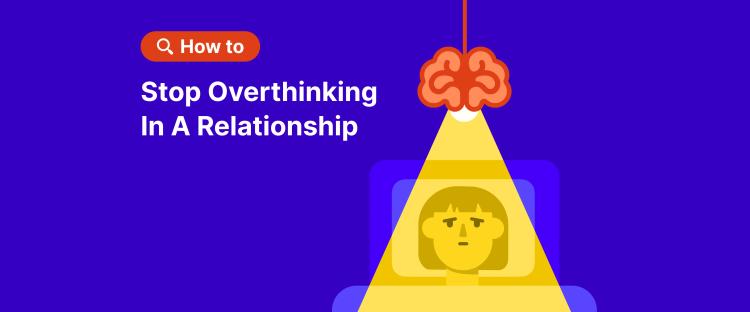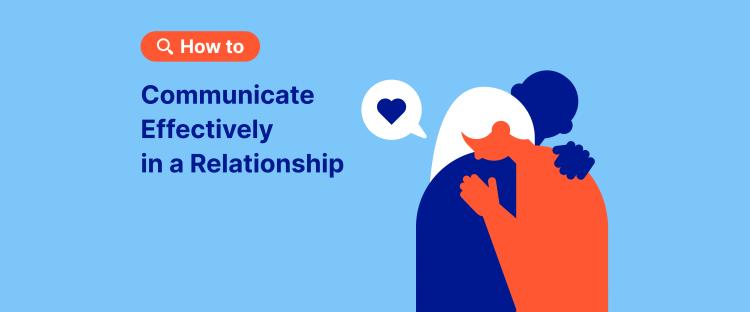Have you ever said something to your significant other in the heat of the moment? Something that you knew you'd regret later? Have you, perhaps, shut down emotionally when you felt overwhelmed? Managing your emotions in a relationship can make a huge difference: the difference between building a deeper bond and slowly drifting away.
Сouples with higher emotional regulation skills report up to 30% greater relationship satisfaction. The better you understand your emotional state, the more likely you are to communicate, respond compassionately, and build a healthy relationship that can weather emotional storms.
So, how do you regain control of your emotions before they control you?
Let's explore practical, science-backed techniques and how books like Thibaut Meurisse's ‘Master Your Emotions,’ Lisa Feldman Barrett's ‘How Emotions Are Made,’ and Richard J. Davidson's ‘The Emotional Life of Your Brain’ can help.
You can dive deeper into these insights anytime with the Headway app, where powerful relationship and emotional intelligence books are broken down into 15-minute summaries you can read or listen to.
Download Headway and start building emotional clarity that actually shows up in your relationship.
Quick answer: How to control your emotions in a relationship
To control your emotions before they control you, try these expert-backed strategies:
Pause and breathe before reacting to shift from emotional to rational thinking.
Name what you feel — labeling emotions helps you regulate them.
Apply the 90-second rule — let emotions pass without fueling them.
Build emotional literacy by tracking what you feel and need.
Use “I” statements to communicate without blaming.
Co-regulate through a calming physical connection with your partner.
Step back when overwhelmed — take space, then return with clarity.
These techniques help you respond with awareness, build a deeper emotional connection, and protect your relationship during moments of emotional heat. Now, let’s look closer at each one of them on the list.
Seven proven strategies to control your emotions in a relationship
When emotions run high, it's easy to lose footing. You can, however, train your brain and body to pause and respond from a place of awareness rather than reactivity.
1. Practice mindful pausing
Before reacting, take a deep breath and count to five. This pause allows your brain to shift from the amygdala (your emotional center) to the prefrontal cortex (your reasoning center). From a somatic view, pausing also gives your body time to downregulate. Even a slow exhale, longer than your inhale, signals safety to the brain.
2. Name and expand the emotion
The moment you feel overwhelmed, pause and ask: What am I feeling? Start simple — angry, sad, anxious — and then go deeper. Are you dismissed, exposed, left out, unseen? Naming the emotion with specificity helps create distance from it. It goes from being the emotion to witnessing it.
Try this:
Place a hand on your chest or belly.
Say aloud: Right now, I’m feeling…
Notice if your body softens when you land on the right word.
This act alone helps re-engage your prefrontal cortex — the part of the brain that regulates behavior and helps you choose your response.
When you name the feeling, you regain the steering wheel.
In ‘How Emotions Are Made,’ Lisa Feldman Barrett writes, "Emotions are not reactions to the world; they are your constructions of the world."The more nuanced your language, the more flexibility your brain has in how it reacts and heals.
3. Use the 90-second rule
Neuroscientist Jill Bolte Taylor explains that emotions only last 90 seconds unless we continue to fuel them with negative thoughts. While your mind might spiral, your body operates on a different timeline. If you can let a wave of emotion crest and fall without feeding it with stories, your body will often recalibrate on its own. Try shaking your arms or humming — these gentle movements help reset your nervous system.

4. Develop emotional literacy
Emotional literacy is the skill of understanding and expressing emotions — not just naming them in the moment, but recognizing patterns over time.
Think of it as emotional fluency:
Can you tell the difference between frustration and resentment?
Do you know what sadness feels like in your body compared to disappointment?
Can you describe what you need, not just what you feel?
Start building this skill by tracking emotional moments daily:
What happened?
What did I feel?
Where did I feel it in my body?
What did I need?
Keep a journal or note on your phone. Over time, you’ll start noticing emotional “themes” — and gain clarity on how to self-regulate before emotions spill into your relationships.
Emotional literacy isn’t just about labeling — it’s about learning from your emotions.
📘 Master your emotional vocabulary — download Headway.
5. Communicate from "I" statements
Instead of saying, "You never listen," try: "I feel unheard when I speak and don't get a response." It shifts blame and invites emotional intimacy. Somatic tip: Anchor your words in your breath. Speak slowly. Feel your feet. This awareness helps you stay present instead of performing or defending.
6. Co-regulate with your partner
Emotion is contagious. Holding hands, making eye contact, and using calming body language can help soothe the nervous system. When possible, try breathing together, in sync, in silence. A hand on the other's back, mirroring body posture, can restore a sense of connection without words.
7. Know when to step back
Sometimes the healthiest move is to take space. Let your partner know you need time to cool off, and come back when you're grounded. If your body is flooded — shaking, sweating, or frozen — stepping back is an act of self-respect and self-regulation.
Example: You're in the middle of an argument about chores. You feel your heart rate spike and your tone shift. Instead of continuing, you say, "I want to talk about this, but I need ten minutes to clear my head." You take a walk, breathe, and return with a calm mind.
Daily habits for emotional mastery
Small things done daily shape how you handle big emotions in moments of high pressure. Mastery isn’t dramatic — it’s consistent.
1. Start with a morning check-in
Before you reach for your phone, pause. Close your eyes and ask: How do I feel right now — emotionally, mentally, physically? You don’t need to “fix” anything — just notice. This awareness sets the tone for the day.
Alternatively, try this prompt: What would it be today if my inner weather had a forecast?
2. Practice mindfulness — even for three minutes
You don’t need to sit cross-legged on a mountaintop. Just breathe normally. Then, try inhaling for four counts, hold for two, and exhale for six. Repeat. Your nervous system shifts its gears towards safety.
Bonus habit: Follow your breathwork session with a grounding action — washing your face, sipping tea, or standing barefoot.
3. Journal — even one sentence counts
Write what you’re feeling. Or what triggered you? Or a weird dream you had. This isn’t about creative or good writing, but emotional digestion. When you name it, you contain it.
Prompt: What stirred something in me today, and what does that remind me of?
4. Prioritize physical care
Emotional balance has physical roots. Sleep enough. Eat food that doesn’t spike and crash you. Move — even a stretch counts. When your body’s regulated, your emotions don’t overwhelm you.
Ask yourself: What does my body need more of today — rest, movement, hydration, or nourishment?
5. Make it tiny and sustainable
Don’t try to overhaul your life overnight. Choose one thing. Anchor it to something you already do — brushing teeth, morning coffee, your commute.
Think: What’s one 3-minute habit that could shift my whole day?
Remember: Emotional mastery isn’t about suppressing feelings — it’s about staying present with them, without being hijacked. You don’t become resilient in a single breakthrough moment. You build it in quiet ones, morning after morning.
📘 Build lasting emotional habits — get Headway now.
Building emotional intelligence as a couple
Emotional intelligence isn't a solo sport — it's relational. The most connected couples don’t just love each other. They stay curious about each other’s inner worlds.
Try these practices to build emotional safety, empathy, and connection.
1. Reflective prompts: Explore each other’s inner maps
Set aside 15–20 minutes. Light a candle. Get comfy. Ask each other reflective questions — not to “fix,” but to understand.
Try these:
What helps you feel safe with me?
When do you feel most emotionally connected to me?
What’s one thing from your childhood that still shapes how you relate today?
Pro tip: Take turns. One speaks while the other listens with full attention — no advice, no solutions. Just presence.
Why it works: Curiosity builds safety. When you feel seen and safe, emotional intimacy deepens.
2. Weekly emotional check-ins: Stay in tune, not on autopilot
Create a 10–15-minute ritual once a week to check in emotionally. Use the same time each week — after a Sunday walk, with Saturday coffee, or before bed midweek.
Ask:
How are you feeling emotionally this week — drained, energized, distant, content?
Is there anything you’ve been needing more (or less) of from me?
What’s one thing that went well between us this week?
Pro tip: Rate your emotional connection 1–10 (no judgment!). If it's below a 6, gently explore why.
Why it works: Emotional needs change. This keeps you from drifting apart without realizing it.
3. Empathy circles: Talk, listen, repeat (with heart)
This structured practice builds deep listening. One partner speaks for 3–5 minutes while the other listens silently. Then you switch. No interruptions. No rebuttals.
Try starting with:
Something that’s been on my heart lately is...
I’ve been carrying this emotion around and unsure what to do with it...
After both partners speak, reflect on what you heard — not to “win,” but to witness.
Why it works: You create space for each other’s emotional truths, even when they’re messy or unclear. That’s real intimacy.
Together, not perfect. You don’t need to be communication experts. Just consistent learners. Emotional intelligence in a relationship is about co-creating a space where both of you can show up — raw, honest, and growing.
In ‘The Emotional Life of Your Brain,’ Richard J. Davidson explores how individual emotional styles can complement or clash and how couples can find balance. Davidson notes,
"The emotional style of your brain can be changed — through conscious effort and daily practice."
Explore more ideas on emotional intelligence in our Headway library.
Understanding emotional management in relationships
Unlike the common misconception, it is not about suppressing or avoiding your feelings. It's about choosing how you respond — even when it's hard.
In romantic relationships, emotional intensity is heightened by vulnerability, fear of rejection, and attachment theory patterns.
Take time to explore those to tame reactivity and develop the ability to show up with compassion. It implies exploring various patterns — vulnerability, fear of rejection, and attachment wounds — not to pathologize yourself, but to heal and grow as a human being. The goal isn’t to feel triggered; it’s to notice the trigger without becoming it.
When you slow down and name what’s happening internally — “I’m feeling abandoned,” “I’m scared they’ll leave,” “This reminds me of when I felt invisible as a kid” — you interrupt the automatic loop. You create space between emotion and reaction.
In that space, compassion becomes a choice. Compassion for yourself: No wonder I’m upset — this matters to me. And compassion for your partner: Maybe they’re struggling too, not trying to hurt me.
Emotional maturity in relationships isn’t about staying calm all the time. It’s about reconnecting with your values even in moments of emotional heat, and learning how to show up as someone who listens, not just reacts.
📘 Heal attachment wounds with compassion — get Headway.
Emotions live in the body

When we talk about emotions, we often focus on thoughts — what we're thinking, how we're interpreting something, what stories we're telling ourselves. But emotions aren't just mental. They're intensely physical.
Fear can feel like tightness in the chest. Anger might show up as heat in the face or clenched fists. Sadness can arrive as heaviness in the shoulders or a lump in the throat.
As a somatic trauma-informed practitioner, I often remind clients that the body feels first and explains later; it reacts before you can name the emotion.. Your breath shifts. Your posture contracts. Your heart speeds up. These are signals — not problems — guiding you toward greater awareness.
When emotional reactions feel "too big" or confusing, tuning into the body can provide clarity. Try asking yourself:
Where in my body do I feel this emotion right now?
Is it moving or still?
Warm or cool?
Open or tight?
If this part of me could speak, what would it say?
This process isn't just about insight. It's about regulation. When we bring attention to the body with kindness and curiosity, we create a slight pause, which makes conscious choice possible.
One somatic practice you can try during emotional tension is orienting. It gently shifts the nervous system from survival mode to presence.
Pause and look around the room.
Name five things you can see.
Notice something that feels comforting — a color, texture, or light.
Take a slow breath and feel your feet on the floor.
This small act of connection can help your system downshift from urgency to safety, bringing your mind and body back into sync.
Emotional mastery is rarely about controlling your mind. It's mostly about befriending your body — the place where emotions begin.
Supporting yourself and others through emotional ups and downs
Emotions don't just affect our relationships — they shape our mental health, choices, and how we appear in the world. Learning to manage emotions is an essential part of self-care, especially when you're navigating a hard time or dealing with strong emotions like grief, anger, or fear.
If you're noticing that strong emotions often lead to patterns like emotional eating or withdrawal, it's a sign your nervous system is seeking comfort or regulation. Understanding these coping mechanisms with compassion — not judgment — is key to building healthier emotional habits.
Emotional outbursts and frequent mood swings are not character flaws — they are signs your nervous system is overwhelmed. One of the most powerful things you can do is pause and name your emotions, especially before speaking to a loved one or family member. That pause gives space for more authentic decision-making and a more grounded connection.
Try tracking negative emotions and negative feelings as they come up — not to judge them, but to understand them. Ask: What triggered this? What does my body need right now?
And if you feel stuck, try stepping away from social media, moving your body, or speaking with a relationship coach or therapist.
You deserve a life filled with healthier relationships, healthy ways of expressing your needs, and emotional habits that serve your whole-body wellness.
📘 Build healthier emotional patterns — download Headway.
Why it's so hard: Triggers, trauma, and the brain
Your nervous system has memory. Old emotional wounds — especially from childhood or past relationships — shape your adult emotional reactions.
Your brain's amygdala processes perceived threats quickly — sometimes too quickly. Your prefrontal cortex needs to stay engaged to shift to a mindful response.
In 'Master Your Emotions, 'Thibaut Meurisse writes,
"Your thoughts are optional. You don't have to believe everything you think."
Creating that gap between thought and action is the heart of emotional regulation.
Experiences like emotional abuse can leave deep imprints on your nervous system, making it harder to feel safe in emotional conversations. Recognizing these patterns can help you approach healing with greater gentleness and awareness.
Want to dive deeper? Headway's guides on emotional healing, anger management, and attachment theory offer actionable insights for lasting change.
What to do when it feels too big

Even with the best tools, some moments feel overwhelming and your reactions disproportionate. You freeze mid-conversation. Your voice disappears. Or you explode and then collapse in guilt. In these moments, it's not just an emotional reaction — it's a nervous system alert.
When you're outside your window of tolerance — the internal zone where you can think clearly and feel safe — your body is simply trying to protect you. Trauma doesn't always show up as a dramatic memory. It can be the quiet panic of not being heard, the invisible freeze when conflict arises.
Here's what you can try when it's too much:
Ground through your senses.
Find something soft to touch.
Smell something pleasant.
Feel your feet against the floor.
Anchor to what's real right now.
Use a self-soothing gesture.
Wrap your arms around your torso in a "butterfly hug." Tap your shoulders gently. Place a warm hand on your chest.
Let your body move. Shake your hands out. Sway side to side. Walk slowly.
Movement discharges activation and brings you back into the present. Speak aloud (even to yourself). Say: "This is hard. But I'm safe now. I can ride this wave." Your body listens to your voice.
You are not broken because you lose control. You're human. Healing doesn't always look like calmness. Sometimes, it comes down to knowing when to pause, reset, act, or return later with more presence.
From reactivity to resilience with Headway book summaries
Managing emotions in a relationship is not about perfection. It's about making small shifts — breathing deeper, pausing longer, listening better.
You can build a more resilient relationship with daily practices, self-awareness, and compassion.
Ready to grow your emotional awareness and strengthen your relationships?
Download the Headway app and explore bite-sized summaries of 'Master Your Emotions,' 'How Emotions Are Made,' and 'The Emotional Life of Your Brain.' In just 15 minutes a day, you can start transforming the way you understand yourself and show up for the people you love.
FAQs about controlling your emotions in a relationship
How do I stop being so emotional in my relationship?
Feeling deeply isn't a bad thing, but if emotions start to take over, it's important to slow down and check in with yourself. Try taking a few deep breaths before reacting. Ask yourself, “What am I feeling, and why?” Then give yourself time to respond, not react. You don’t need to hide your feelings — just give them space before acting on them.
Why do I cry so easily in my relationship?
Crying easily can mean you're feeling overwhelmed, misunderstood, or emotionally unsafe. It’s your body’s way of asking for help or comfort. Instead of judging yourself, try noticing what situations trigger the tears. Are you feeling unheard? Stressed? Lonely? Gaining awareness helps you understand your needs and share them with your partner more clearly.
How do I stop taking my emotions out on my partner?
When emotions build up, it’s easy to let them spill over. But blaming or yelling only creates distance. Try pausing when you feel upset and take a few deep breaths. Use “I” statements instead of “you” — for example, say “I feel hurt when I don’t feel heard” instead of “You never listen.” This keeps the focus on your feelings, not your partner’s actions.
How to stop having feelings for someone you can't have?
Loving someone who doesn’t or can’t return the feelings is painful. Give yourself permission to feel sad or disappointed — those feelings are real. Then slowly shift your focus to yourself: your goals, your friends, your routines. Limit contact if it keeps reopening the wound. With time and self-care, those strong feelings will fade.
How do I detach my emotions from my partner?
Detaching doesn’t mean you stop caring — it means you give both of you space to feel and grow without getting pulled into each other’s emotional storms. Try focusing on your own thoughts, routines, and emotional needs. When you feel overwhelmed, step back and ask, “Is this about me or them?” Staying grounded helps you love without losing yourself.
Why am I so unhappy in my relationship?
If you feel unhappy often, it may be a sign that your emotional needs aren’t being met. Ask yourself: Do I feel respected? Safe? Heard? Relationships should support your growth, not drain you. It’s okay to talk about what’s missing — either with your partner, a trusted friend, or a counselor. Unhappiness is a signal, not a failure.
Is it okay to cry every day in a relationship?
Crying once in a while is normal — relationships can bring up strong emotions. But crying every day may be a sign that something deeper is going on. You might be feeling overwhelmed, unseen, or emotionally unsafe. It’s important to take that seriously. Talk to someone you trust or a therapist who can help you explore what’s behind the tears.
















